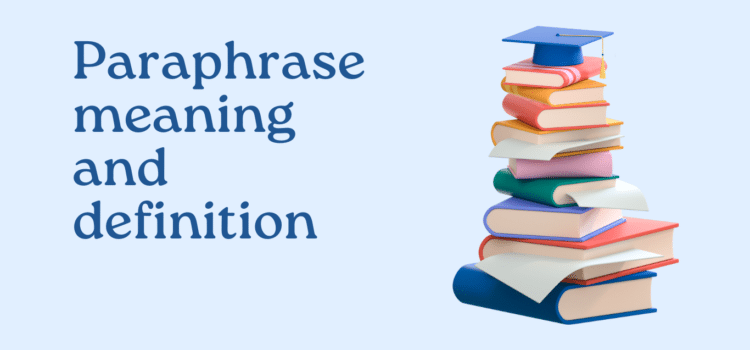
As a noun, paraphrasing refers to the act of rewording a passage or idea using different wording, while preserving the original meaning. This technique is invaluable in academic writing, professional presentations, and everyday conversations, as it showcases our ability to comprehend and convey information clearly.
Paraphrasing as a verb involves the process of taking a source material and rewriting it in our own unique style. This skill is particularly useful when summarizing lengthy texts, clarifying complex concepts, or avoiding plagiarism. By paraphrasing, we can effectively communicate ideas, demonstrate our knowledge, and engage our audience more effectively.
Mastering the art of paraphrasing is a valuable skill for any writer or communicator. It enables you to explain things more clearly, avoid plagiarism, and showcase your expertise. Whether you’re summarizing research, clarifying instructions, or reiterating key points, paraphrasing is an essential tool in your writing arsenal.
Verb forms of Paraphrase
The simple past: Paraphrased
Present participle: Paraphrasing
third-person singular simple present: Paraphrases
Examples of Paraphrase in a Sentence
Original: He has a lot of stuff to throw away.
Paraphrase: He needs to clear out a lot of junk.
Original: The project was completed ahead of schedule and under budget.
Paraphrase: The team delivered the project sooner than expected and at a lower cost.
Original: Consistent exercise and a balanced diet are essential for maintaining good health.
Paraphrase: Regular physical activity paired with nutritious eating habits are the cornerstones of wellness.
Original: The technological advancements of the past decade have transformed the way we live and work.
Paraphrase: The rapid pace of innovation over the last ten years has profoundly impacted our daily lives and workplaces.
By paraphrasing rather than directly quoting, you demonstrate your own understanding of the material and your ability to communicate it compellingly. Mastering paraphrasing skill will elevate your writing and help you connect more meaningfully with readers.
Common Mistakes in Paraphrasing
Paraphrasing can be tricky. Here are some common mistakes to avoid:
1. Changing Only a Few Words: Simply swapping out a few words for synonyms is not true paraphrasing. It can still be considered plagiarism. Make sure to rewrite the entire sentence in your own words.
2. Keeping the Same Structure: Even if you change the words, keeping the same sentence structure can make your text too similar to the original. Alter the structure to make it unique.
3. Not Understanding the Original Text: If you don’t fully understand the text you’re paraphrasing, your version might be inaccurate. Always grasp the meaning first, then rewrite.
4. Using Complex Language: Overcomplicating your paraphrase can make it hard to read. Use simple, clear language to ensure your writing is understandable.
5. Losing the Original Meaning: It’s easy to change the meaning when paraphrasing. Make sure your version conveys the same idea as the original.
6. Forgetting to Cite Sources: Even when paraphrasing, you need to give credit to the original author. Always include citations where necessary.
By avoiding these mistakes, you can create effective and original paraphrased content.
Understanding the Difference Between Paraphrasing and Plagiarism
There is a fine line between paraphrasing and plagiarism. If paraphrasing is not done correctly and only a few words are changed, it is considered plagiarism. Paraphrasing is excellent as it reflects your own thoughts, but plagiarism is unethical and illegal. Our free rewording tool will help you create 100% unique content.
It is always recommended to write what you have in your head instead of trying to modify someone else’s content.
Other helpful articles:
- Paraphrase Synonyms and Antonyms
- Paraphrasing Examples for a Better Writing
- Paraphrasing Types
- Why Paraphrasing is Important


